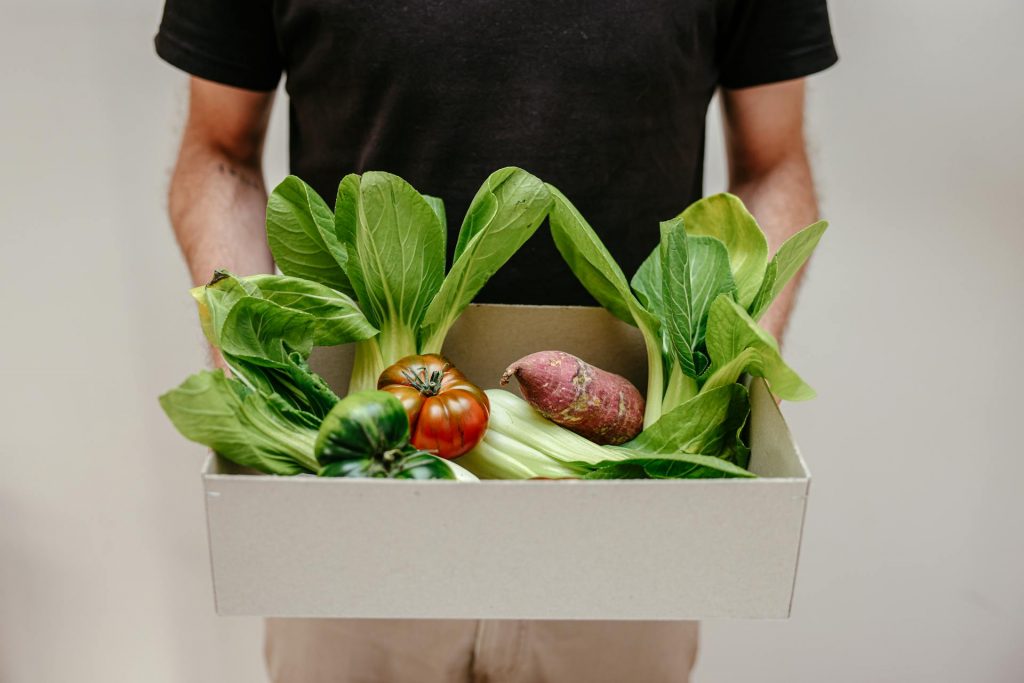Just because your yard is small because you live in the city, or even non-existent because you live in an apartment, doesn’t mean you can’t grow a garden. With some creative ideas and thoughtful planning, you can enjoy your patio and successfully have an urban garden. Even better, if you’re working from home and need a new hobby, you’ll enjoy the health benefits—and the potential side business—that gardening has to offer, and maybe get in a little socialization too.
If you’re looking to start your own urban garden, the following guide presented below by For Plants can help you get started.
Bring Color and Privacy to Your Patio
Cities can sometimes be void of color with dull brick and steel structures, and patios between buildings can feel dark. A good blend of plants in a variety of colors creates a splash of color. Furnishings and painted pots can also add a pop of color. You can even paint your back door or add a weather-resistant rug or artificial grass. As Gardenista notes, experts recommend sticking to three colors, with green being one of them. For the other two, use shades of one color or use complementary and contrasting colors. Similarly, if you paint your pots, use one color.
Some balconies or patios lack privacy. Use tall, leafy, potted plants to shield your patio. You can also add a wood screen that features climbing plants or create a wall from salvaged wood. For ambiance, add string lights or a candelabra. Add character using pavers, reclaimed barn doors, or a small trellis. For a seamless transition from indoors to outdoors, add houseplants near the entry to the balcony or patio. The key is to make your patio or outdoor area an oasis you can escape to to relax and put your feet up.
How to Plant
Look for ways to get plants off the ground (which reduces bending). Use hanging baskets or window boxes. Before hanging any plants, check the load bearing capacity of your balcony. The weakest spot of most balconies are in the middle, so place heavy pots around the perimeter. Country Living explains how you can create a vertical garden wall using pallets, a ladder, stacked crates, an upcycled dresser, and more.
Use the biggest containers that will fit and that meet the weight capacity of your balcony. Because bigger containers hold more soil, plants have less stress and have a better chance to thrive. The bigger pots also look more aesthetically pleasing.
Add a top dressing — such as pebbles, shells, slate pieces, moss, and wood bark chips — in your containers. Not only will this add a finishing touch, but it will also prevent water from evaporating too quickly from the containers. You don’t have to stick to shrubs and flowers when planting in containers. Grow herbs, small trees, vegetables, fruit, and succulents too.
Build a Raised Bed
Building a raised bed for your garden is an excellent way to improve soil conditions and make gardening more accessible. Raised beds provide better drainage, reduce soil compaction, and can help prevent pests. They allow you to control the quality of the soil and create an ideal environment for your plants. The process involves constructing a frame, typically from wood or metal, filling it with nutrient-rich soil, and then planting your chosen crops. It’s a rewarding project that can significantly enhance your gardening experience and increase the productivity of your garden.
Plant Care Help
Online resources can guide you and can be incredibly beneficial for both novice and experienced gardeners seeking to enhance their plant care knowledge. Websites like these offer a wealth of information, from understanding the basic needs of different plant varieties to more complex topics like pest control and propagation techniques. They provide practical tips and step-by-step guides that can help you navigate the gardening process, ensuring your plants thrive. Whether you need advice on watering schedules, light requirements, or how to deal with common plant diseases, turning to resources like Home Garden Hero can empower you to become a more confident and successful gardener.
Reach Out to Others
If you’d prefer to get the true gardening experience, you might consider shared or community gardening, both of which improve access to fresh foods, improve food security, promote relaxation, and provide low-impact exercise. The socialization and group mentality are a big bonus too. Ask around your area to see if there is any interest in starting a community garden.
Tending to a garden can be a group effort, making it an easy way to connect with other like-minded gardeners who share the same passions as you. Plus, gardening with others means there is always someone around to lend a helping hand. By participating in a shared garden, you can ensure that your garden is getting the TLC it needs on those days when you can’t get away.
Health Benefits
While gardening may not be as intense as running five miles on the treadmill, researchers have found that prolonged light exercise, such as gardening, can actually burn more calories, despite feeling much easier to do. It has to do with the duration of the activities. Gardening is a low-intensity activity, so you spend two or three times as long gardening than you would at the gym. Cleveland Clinic points out that the repetitive motions of shoveling, weeding, digging, and pruning also build muscle strength and stamina.
Beyond the calorie burning and muscle building, gardening also takes your mind off of the stressors in your life, which can reduce anxiety, depression, and stress. Being in nature adds to this effect. Gardening can also improve mood, boost self-esteem, and lower blood pressure.
Benefits to Your Property
Starting an urban garden can not only provide a range of environmental and mental health benefits, but it can also result in a bump in the appraisal value of your home. An urban garden adds to your house’s landscaping, making it look more appealing to potential buyers and increasing its curb appeal.
Furthermore, urban gardens are also great for adding color to yards or vacant lots that would otherwise be a bit drab. Not only that, but nutrient-rich soils as a result of gardening activities can improve water runoff quality, which is an added bonus for purchasers looking at properties with an urban garden. With added attraction points such as these, you’ll likely end up receiving more on the appraisal of your home than you would if there was no urban garden present.
Turning Your Hobby Into a Business
Turning your urban garden into a small business can be an exciting endeavor. If your garden is producing an abundance of things to eat, consider how you may be able to use them in a food business of some kind. This may be as simple as setting up at your local farmers market, but there are many other options, too.
Business Resources
You can further your knowledge by talking to professionals in the industry, visiting sources online that explain the basics of starting a new company, or attending an entrepreneurship seminar. Educating yourself on your field is paramount, as it will not only help you make informed decisions but will also give potential investors in your venture more confidence in your ability to navigate the realm of business ownership.
Don’t let your lack of space deter you from trying your hand at gardening. With some planning and tricks, you can easily transform your patio or balcony into a functioning and beautiful urban garden — and maybe start a new business while you’re at it!
For more helpful articles and tips about plant care, visit For Plants today!



